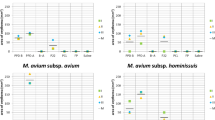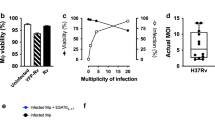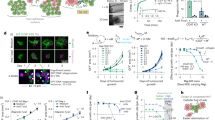Abstract
Administration of C. parvum to both intact and thymectomized mice resulted in the appearance in the peritoneal exudate of cells which inhibited tumour growth in vitro. This effect was mediated by intact, viable adherent cells, which it seems reasonable to categorize as macrophages, and was contingent on contact between the effector and target cells. No co-operation was observed between lymph node cells from C. parvum treated mice and peritoneal exudate cells from normal mice.
This is a preview of subscription content, access via your institution
Access options
Subscribe to this journal
Receive 24 print issues and online access
$259.00 per year
only $10.79 per issue
Buy this article
- Purchase on Springer Link
- Instant access to full article PDF
Prices may be subject to local taxes which are calculated during checkout
Similar content being viewed by others
Rights and permissions
About this article
Cite this article
Ghaffar, A., Cullen, R. & Woodruff, M. Further analysis of the anti-tumour effect in vitro of peritoneal exudate cells from mice treated with Corynebacterium parvum. Br J Cancer 31, 15–24 (1975). https://doi.org/10.1038/bjc.1975.3
Issue Date:
DOI: https://doi.org/10.1038/bjc.1975.3
This article is cited by
-
Immunomodulatory activity of protein-bound polysaccharide extracted from chelidonium majus
Archives of Pharmacal Research (2002)
-
The in vivo cytostatic effect induced by Propionibacterium granulosum on murine tumor cells
Journal of Cancer Research and Clinical Oncology (1980)



